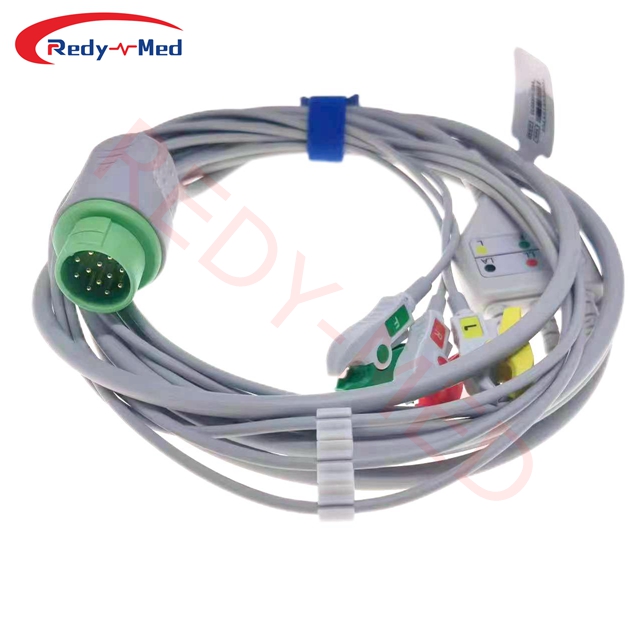
How to Properly Maintain and Extend the Lifespan of Your ECG Cable
2024-03-21 00:04:44
The Significance of Properly Maintaining and Extending the Lifespan of Your ECG Cable

As a healthcare professional or someone who regularly uses ECG (Electrocardiogram) cables, it is crucial to understand the significance of properly maintaining and extending the lifespan of these essential devices. The ECG cable serves as a vital component of the ECG system, enabling the recording and analysis of the heart's electrical activity.
1. Regular Inspection and Cleaning
Regular inspection and cleaning are fundamental for ensuring the longevity and accuracy of your ECG cable. Inspect the cable and connectors for any signs of wear, damage, or loose connections. Clean the cable and electrodes following the manufacturer's instructions and guidelines. Proper cleaning helps to prevent buildup of dirt, oils, and debris that can interfere with signal quality.
2. Proper Handling and Storage
Proper handling and storage of the ECG cable are crucial to avoid unnecessary strain or damage. Always handle the cable gently, avoiding excessive bending or pulling on the wires. When not in use, coil the cable loosely and store it in a clean and dry environment, away from direct sunlight, extreme temperatures, or moisture.
3. Avoiding Excessive Tension and Stretching
Excessive tension or stretching of the ECG cable can lead to damage or degradation of its components, affecting its performance and lifespan. Avoid placing heavy objects or applying excessive tension on the cable when it's connected to the patient. Use cable management techniques to prevent entanglement or accidental pulling during patient movement.
4. Regular Calibration and Maintenance Checks
Regular calibration and maintenance checks are essential to ensure accurate signal transmission and precise measurements during ECG recordings. Follow the manufacturer's recommended calibration schedule and perform routine maintenance checks on the ECG system. This includes inspecting the cable connectors, replacing worn-out parts, and verifying signal quality.
5. Proper Cable Handling During Patient Use
During patient use, it is crucial to handle the ECG cable with care to ensure patient comfort and prevent cable damage. Routinely assess the cable's position, ensuring it is not under tension or causing discomfort to the patient. Educate patients about proper cable handling to prevent accidental disconnections or damage while they are wearing the ECG electrodes.
Conclusion
In conclusion, proper maintenance and extension of ECG cable lifespan are integral to ensure reliable and accurate ECG recordings. By following the recommended guidelines for inspection, cleaning, handling, storage, calibration, and patient use, you can significantly enhance the durability and performance of your ECG cable. Prioritizing the maintenance of your ECG cable not only extends its lifespan but also ensures the delivery of optimal patient care and accurate cardiac assessments.
Get the latest price? We'll respond as soon as possible(within 12 hours)




